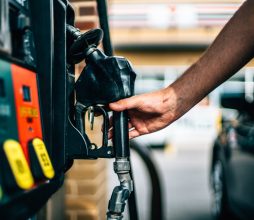After making a brief weekend trip to $3.07, the national average for gas edged higher by one penny since last week to $3.10. The meandering journey is likely caused by low gas demand countered by slightly higher costs for oil. The result is a pump price stalemate.
“Like watching dogs play chess, not much is happening,” said Andrew Gross, AAA spokesperson. “The national average for gas will likely maintain a glacial grind higher for the immediate future.”
According to new data from the Energy Information Administration (EIA), gas demand dipped from 8.27 to 7.89 million b/d last week. Meanwhile, total domestic gasoline stocks increased by 4.9 million bbl to 253 million bbl. Due to fluctuating oil prices, lower gas demand and rising stocks, pump price increases have been limited. If oil prices continue to see upward pressure, drivers could see pump prices increase steadily in the weeks ahead.
Today’s national average of $3.10 is two cents less than a month ago and 38 cents less than a year ago.
Quick stats:
Since last Thursday, these 10 states have seen the largest changes in their averages: Florida (+14 cents), Washington, DC (+14 cents), Utah (−12 cents), Delaware (+10 cents), Idaho (−9 cents), Tennessee (+8 cents), Kentucky (−8 cents), Texas (+7 cents), Indiana (−7 cents) and Arizona (+6 cents).
The nation’s top 10 least expensive markets: Missouri ($2.63), Utah ($2.63), Oklahoma ($2.65), Kansas ($2.66), Wyoming ($2.66), Arkansas ($2.67), Colorado ($2.68), Mississippi ($2.69), Texas ($2.75) and Wisconsin ($2.76).
Oil market dynamics:
At the close of Wednesday’s formal trading session, WTI increased by 72 cents to settle at $75.09. Oil prices rose yesterday after the EIA reported that total domestic commercial crude stocks decreased significantly by 9.2 million bbl to 420.7 million bbl. The drop in total stocks signals that tight supply could increase prices if demand grows.
Read the full report from AAA here.
